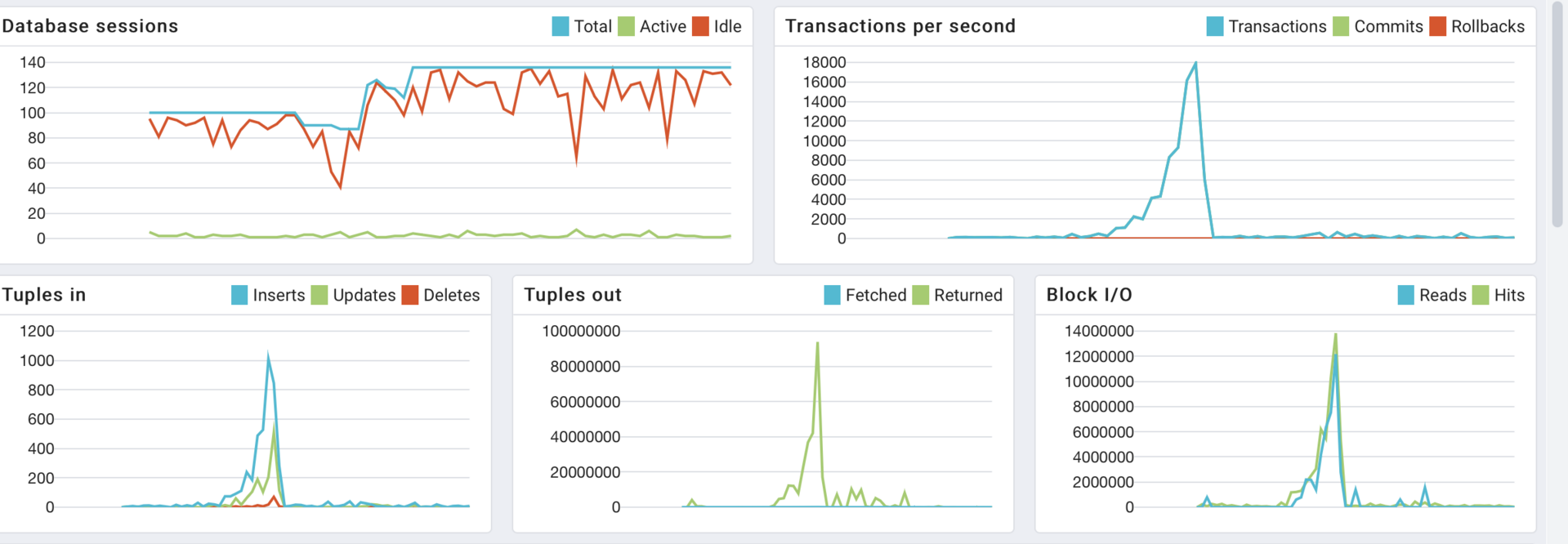Answer the question
In order to leave comments, you need to log in
Why does query response time increase under load?
To connect to the database, I use the asyncpg python library, all the settings have been optimized, indexes have been created on all tables, the server is 128GB operative, 128 cores, 1 NVME disk, ubuntu, there is a problem when there are few users, all requests are completed in an average of 60ms, but when users gets bigger, even the simplest queries are completed in 300ms+, why is that? Is it possible to fix this somehow?
asyncpg setup:
async def create(self):
pool = await asyncpg.create_pool(
user=config.PGUSER,
password=config.PGPASSWORD,
host=config.ip,
port=5432,
database=config.DATABASE,
max_size=300,
max_inactive_connection_lifetime=60.0,
min_size=20,
max_queries=100000,
statement_cache_size=16000,#9000
max_cached_statement_lifetime=300,
max_cacheable_statement_size=0,
command_timeout=120.0
)
self.pool = pool
asyncpg.exceptions.DeadlockDetectedError: deadlock detected
DETAIL: Process 2220108 waits for ShareLock on transaction 14040699; blocked by process 2220462.
Process 2220462 waits for ShareLock on transaction 14040460; blocked by process 2220456.
Process 2220456 waits for ExclusiveLock on tuple (12,51) of relation 16565 of database 16385; blocked by process 2220108.
HINT: See server log for query details.Answer the question
In order to leave comments, you need to log in
Apparently, the problem is not in the server, but in an interesting (in fact, crookedly implemented) business logic that creates deadlocks
Didn't find what you were looking for?
Ask your questionAsk a Question
731 491 924 answers to any question